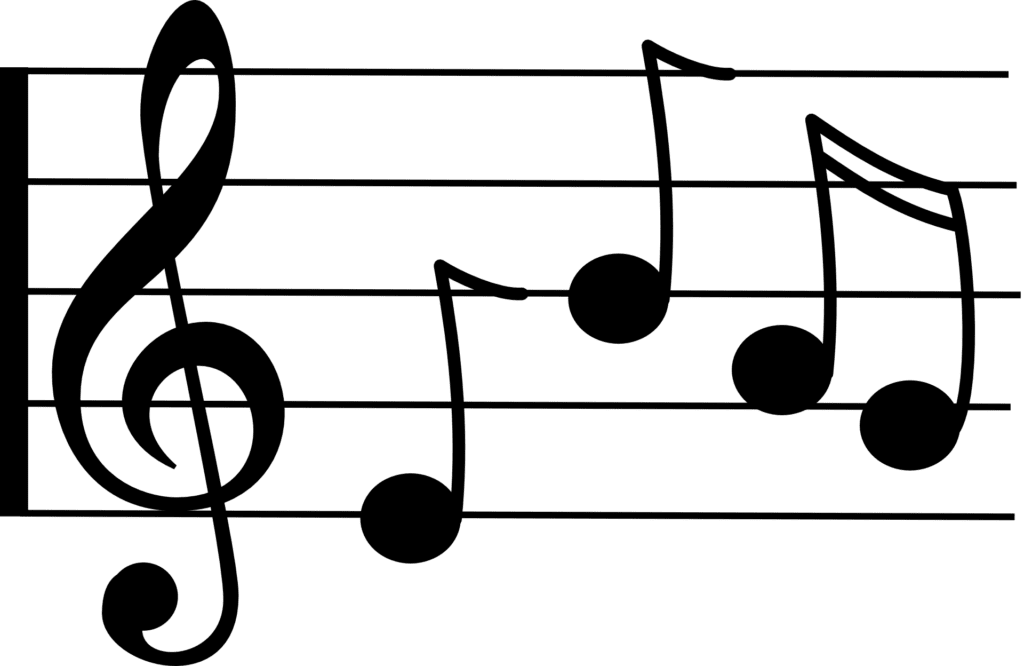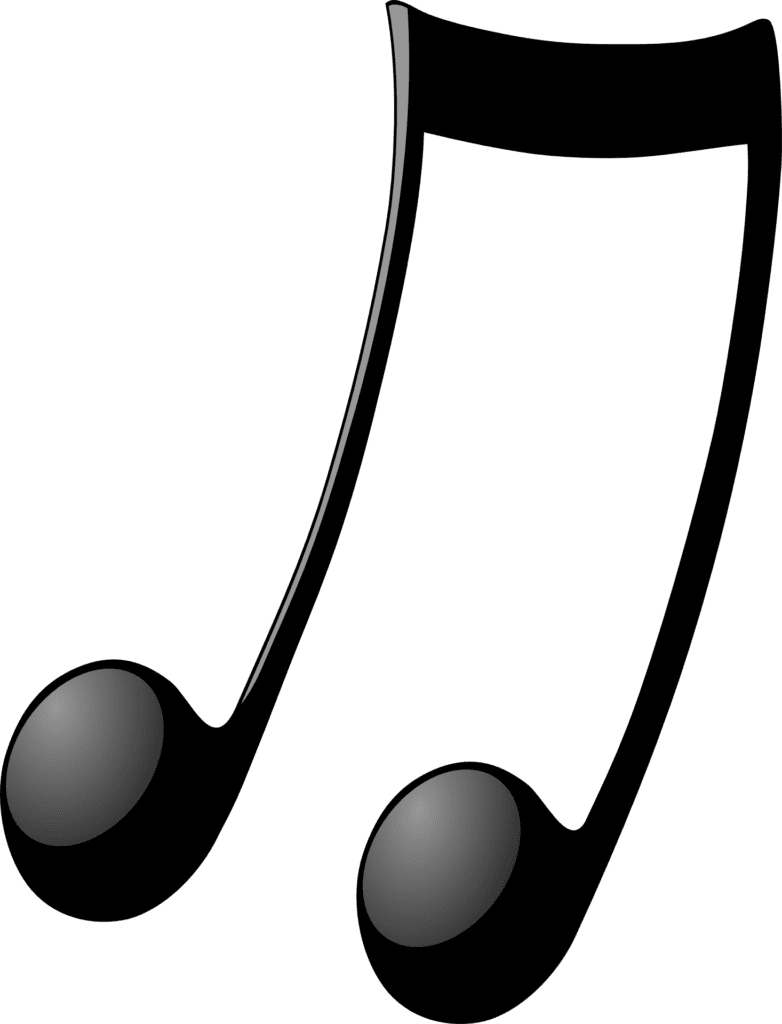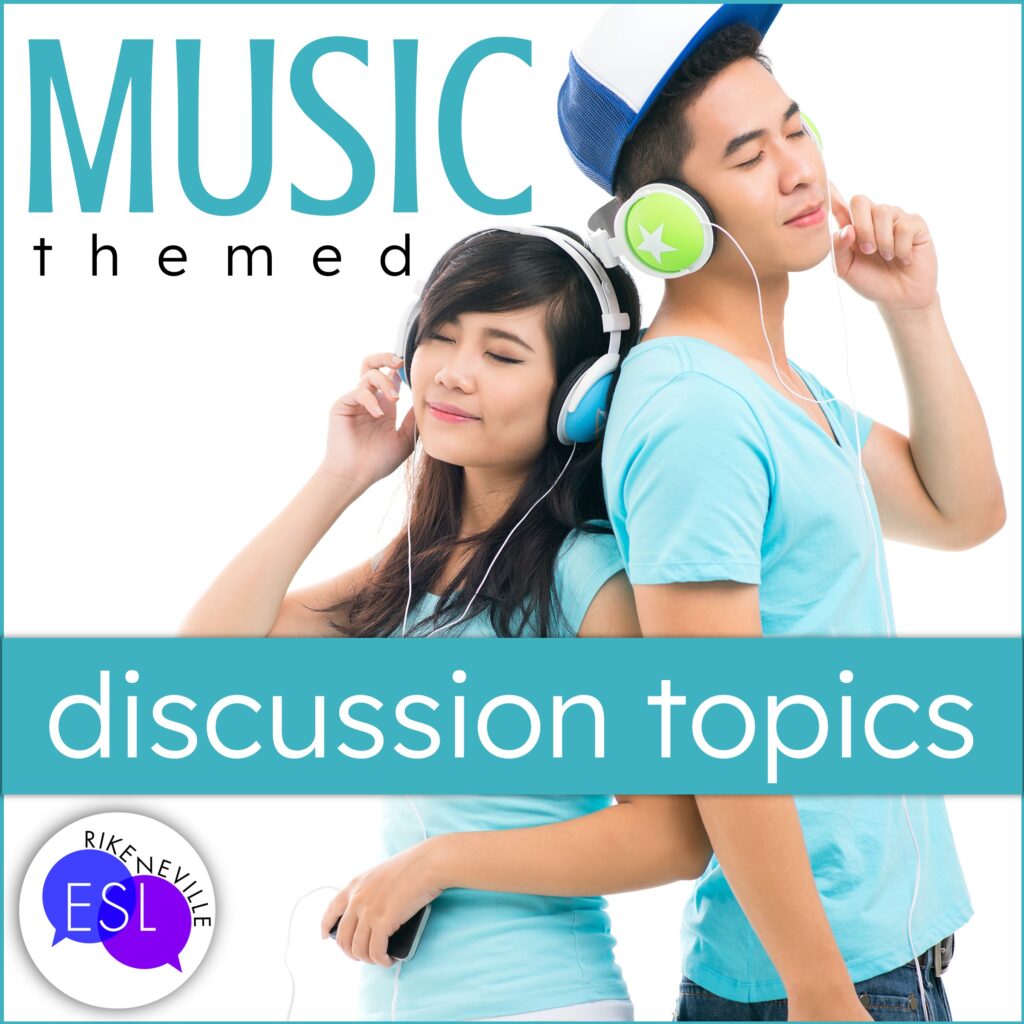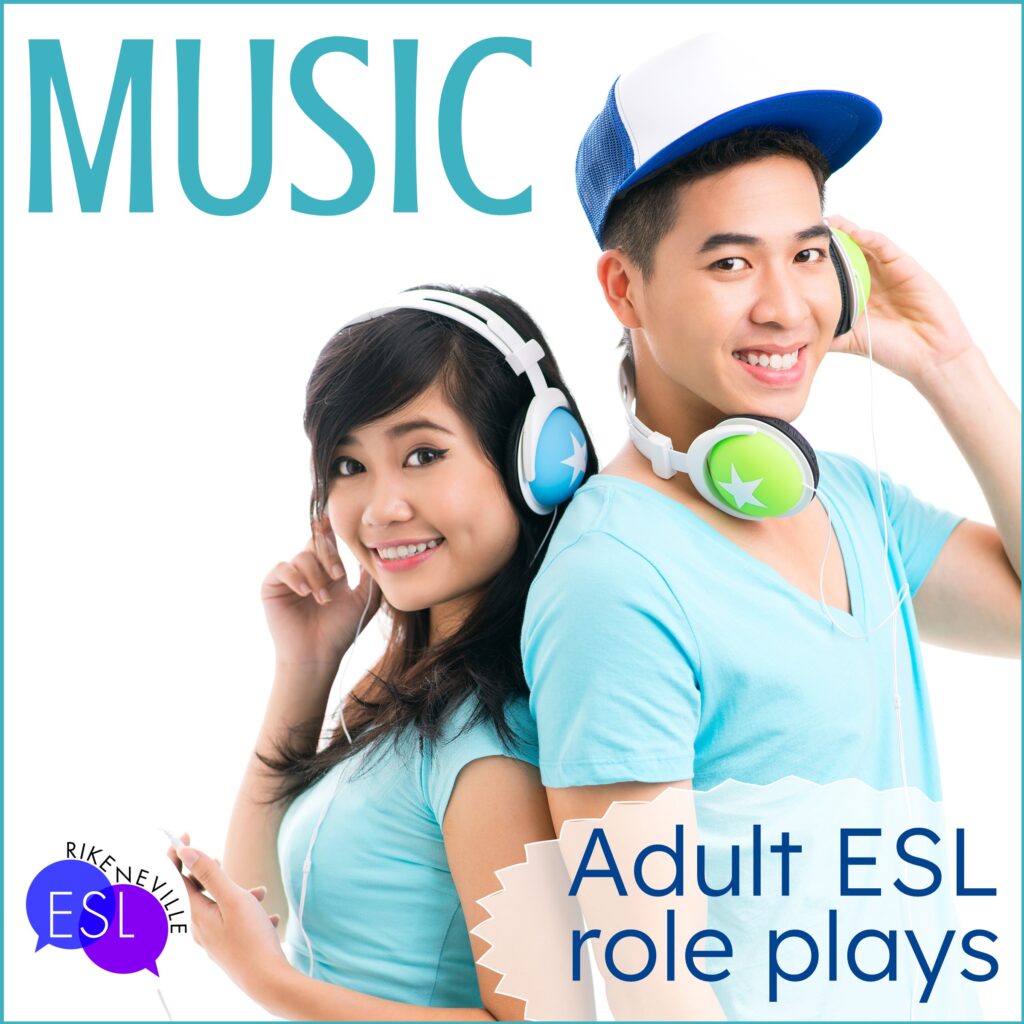
Music is a universal language that can bring people together and facilitate meaningful conversation. In an adult ESL class, incorporating music in adult ESL can be a fun and engaging way to improve language skills and create a sense of community among learners.
Here are five ideas for adding music in adult ESL classes:
Share Time: Adding culture to music in adult ESL
- Before the class, assign the students the task of selecting one of their favorite songs or pieces of music from their home country to share with the class. You could also specify a particular genre or style of music, such as pop, rock, folk, or classical.
- During the class, have each student present their chosen song or piece of music to the class. They can share information about the artist or band, the lyrics or theme of the song, and any cultural or historical context that might be relevant.
- As the students present their songs, encourage the rest of the class to listen and ask questions. This can lead to conversations about cultural differences and similarities, as well as personal experiences and preferences with music.
You can also use the presentations as an opportunity to practice language skills, such as vocabulary, comprehension, pronunciation, and speaking. For example, you could have the students describe the lyrics or theme of their song in English, or have them explain the cultural significance of the music in their home country.
You may want to set a time limit for each presentation or limit the number of songs each student can present, depending on the length of your class and the number of students.
You can also consider creating a playlist or compiled list of the songs and music shared in class, which students can access for further listening and practice.
If you need something with more meat for your advanced students, check out my Music Discussion Questions for Adult ESL.
Use lyrics to practice vocabulary and comprehension skills to add a taste of music in adult ESL lessons.
You’ll want to choose a song that has clear and distinct vocals and appropriate lyrics for your class. You may want to select a song that has a theme or message that is relevant to your lesson plan or language goals.

- Play the song for the students and ask them to listen carefully to the lyrics.
- Have the students work in pairs or small groups to discuss the meaning of the lyrics and how they relate to the theme or message of the song. Encourage them to use new vocabulary and language structures as they discuss.
- As a class, discuss the students’ ideas and interpretations of the lyrics. You can ask questions to guide the discussion and provide additional vocabulary and grammar support as needed.
You can also have the students write a summary or analysis of the lyrics, using specific vocabulary and language structures. This could be done individually or in groups, depending on the level of the class and the amount of time available.
To further practice vocabulary and comprehension, you could also have the students look up the meanings of specific words or phrases in the lyrics that they are unfamiliar with.

Organize a music trivia game to review grammar and vocabulary concepts.
Another fun activity to sprinkle some music in adult ESL classes that will require some prep is a music trivia game. Here’s what to do:
- Prepare a list of music-related questions in advance, or use a pre-made trivia game or quiz show format. Some examples of questions could include:
- name the artist or band who performed a specific song
- identify the genre or style of a specific song
- name the lyrics to a specific song or fill in the blank with a missing lyric
- identify the country of origin for a specific artist or band
- Divide the students into teams and provide each team with a scorecard or other way to keep track of their answers.
- Play clips of popular songs and ask the teams to answer the corresponding question. You can use a timer or set a limit on the number of attempts each team has to answer the question.
- Award points to the team that provides the correct answer first, or allow teams to earn bonus points for answering additional questions about the song or artist.
- Continue playing the game until all of the questions have been asked, or for a predetermined amount of time. The team with the highest score at the end of the game is the winner.
Practice pronunciation and intonation with music in adult ESL classes.
Using music in adult ESL pronunciation classes injects immediate fun!
- Choose a song that has clear and distinct vocals, and make sure the lyrics are appropriate for your class.
- Play the song for the students and ask them to listen carefully to the rhythm, stress, and melody of the vocals.
- Have the students repeat a specific phrase or verse from the song, paying attention to the way the words are pronounced and the intonation of the vocals.
- Play the song again and have the students try to imitate the pronunciation and intonation as closely as possible.

Continue practicing with different phrases or verses from the song until the students feel comfortable with the pronunciation and intonation.
You can also have the students practice singing the song as a group or in small groups, focusing on the pronunciation and intonation of the lyrics.
Intertwine music and role plays.
Music in adult ESL speaking classes can do double duty with role plays.
Using music as a theme for role plays can be a creative and interactive way to practice language skills in the adult ESL classroom. By selecting songs that relate to a specific topic or theme, students can use the lyrics and music as inspiration for their role-play scenarios.
For example, if the theme is relationships, students could listen to a song about falling in love and use the lyrics to create a role-play about a couple meeting for the first time. Alternatively, students could choose a song about a break-up and create a role-play about a couple breaking up. The possibilities are endless, and using music as a theme allows students to tap into their creativity and imagination to explore language and communication in a meaningful and authentic way.
Not only do music-themed role plays provide a creative and interactive way for students to practice their language skills, but they also allow for the exploration of cultural and linguistic themes through the lyrics and themes of the songs selected. So why not give it a try in your next adult ESL lesson? Your students are sure to have a blast while improving their English language skills.
Love the idea of using role plays but need something more structured for your students (and that is zero prep for yourself?
Try my music-themed role-play resource! This drastically cuts down on the time you need to prep (almost zero prep!).
Music Role Plays for Adult ESL is great for intermediate to advanced. It includes scripts, scenario cards, vocabulary, and more!
Let’s talk about differentiation.
For different levels of language proficiency:
- For lower-level students, you may want to select songs with simpler lyrics and themes and focus on activities that involve listening and repeating specific phrases or verses from the song. You could also provide additional vocabulary and grammar support as needed.
- For higher-level students, you could choose more complex songs with more challenging lyrics and themes and focus on activities that involve more in-depth analysis and discussion of the lyrics. You could also challenge the students to use more advanced vocabulary and language structures as they discuss and write about the songs.
For different class sizes:
- For larger classes, you may want to divide the students into smaller groups or pairs for some of the activities, such as discussing the lyrics or writing a summary or analysis of the song. This can allow for more individualized attention and support and can also make the activities more manageable and efficient.
- For smaller classes, you may want to do more whole-class activities, such as presenting songs to the class or playing music trivia games, which can allow for more direct interaction and discussion among the students.
In conclusion, incorporating music into adult ESL classes can be a fun and engaging way to improve language skills and develop a sense of community among learners.
Want something related to music in adult ESL classes for advanced students? Try my music-themed discussion questions! This drastically cuts down on the time you need to prep (almost zero prep!)



Leave a Reply